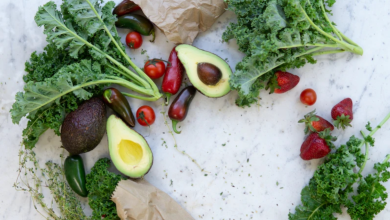Best Diet Plans for Managing Type 2 Diabetes

Eating Right to Manage Type 2 Diabetes
If you’re dealing with type 2 diabetes, paying attention to your diet is crucial. It’s not just about cutting down on sugar; it’s about maintaining stable blood sugar levels and managing your weight to keep diabetes-related symptoms at bay.
The Power of a Diabetes-Friendly Diet
A diet tailored for type 2 diabetes can do wonders:
- Weight Control: Smart food choices contribute to weight management, which helps keep your blood sugar levels in check.
- Blood Sugar Regulation: Eating right can bring down high blood sugar levels, reducing symptoms like fatigue and frequent urination.
- Heart Health: A good diet can also lower your chances of heart problems, a common concern for those with diabetes.
Building the Right Plate
For a balanced diet in type 2 diabetes, consider these elements:
- Wholesome Foods: Focus on unprocessed, nutrient-rich foods to keep blood sugar levels steady.
- Fiber-Rich Foods: Foods high in fiber can slow the absorption of sugar into your bloodstream and help prevent spikes.
- Good Fats: Healthy fats, like those in certain oils, nuts, and fish, can help with glucose control.
- Carbs with Caution: Carbs are still on the menu, but watch the portions to avoid blood sugar spikes.
- Balanced Meals: Mix lean proteins, veggies, fruits, complex carbs, and good fats for a well-rounded meal.
Type 2 Diabetes Diet Options
Several diet plans are friendly to those with type 2 diabetes, such as:
- Mediterranean Diet: This plant-centric diet, with moderate poultry and seafood, is great for diabetes and heart health.
- Vegetarian or Vegan: These diets, which exclude meat and possibly other animal products, can help stabilize blood pressure and sugar levels.
- DASH Diet: Aiming to combat high blood pressure, this diet is rich in whole grains, fruits, veggies, and low-fat dairy, and light on processed foods and red meat.
- Paleo Diet: By focusing on whole foods and cutting out processed ones, paleo can be beneficial, but watch out for the high intake of saturated fats.
- Low-Carb Diet: Limiting carbs can be effective for weight loss and blood sugar control, though its long-term sustainability is debated.
What to Include in Your Diet
Certain foods are particularly beneficial for a diabetes diet:
- Whole Grains: Brown rice, quinoa, oats.
- Non-Starchy Vegetables: Brussels sprouts, broccoli, greens like kale.
- Starchy Vegetables: Enjoy them, but remember, moderation is key.
- Low-Fat Dairy: These can be part of a balanced diet without the excess fat.
And Some to Avoid…
High sodium, saturated fats, and sugary beverages can derail your diabetes management efforts.
Beverages for Better Health
- Go for: Water, vegetable juice, and homemade iced teas.
- Avoid: Sugar-laden drinks, excessive alcohol, and large amounts of caffeine.
Getting Started
- Plan Your Meals: Mapping out your meals can help ensure nutritional balance and portion control.
- Nutrition Therapy: Consulting a dietitian can tailor your diet to manage diabetes effectively.
Diets to Approach with Caution
Be wary of intermittent fasting and over-the-counter diet pills, especially if they’re not FDA-approved.
FAQs for a Diabetes Diet
- Basic Guidelines: Balance your plate with a variety of foods, keeping a close eye on fats and carbs.
- Foods to Limit: Reduce intake of saturated fats, alcohol, sugary drinks, and large amounts of carbs.
- Lowering A1C: Incorporate whole grains, fruits, nuts, legumes, and fatty fish to help reduce A1C levels.
- Daily Carbs: The amount of carbs needed can vary, but generally, carbs should make up about 45% of your daily calories.




